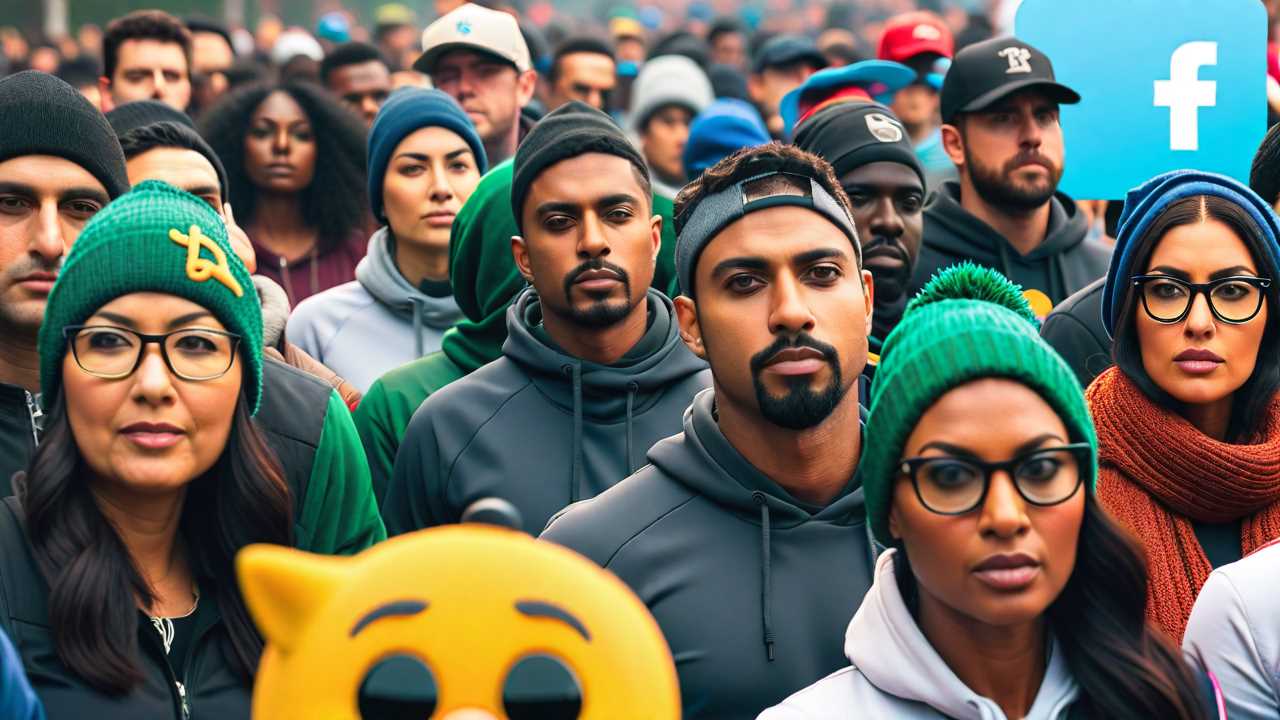Politics
What Is the Role of Social Media in Elections?
The influence of social media on elections is profound, offering a platform for candidates to amplify their messages, engage with voters, and shape public

Social media’s impact on elections is undeniable, with its ability to shape narratives, mobilize support, and influence millions of voters at the tap of a screen. You might wonder how this digital landscape impacts the democratic process, who controls the flow of information, and how it shapes the political discourse. As we navigate the complexities of social media’s role in elections, let’s delve into the power it wields and the responsibility it entails in shaping the future of democracy.
Amplifying Campaign Messages
Social media plays a crucial role in amplifying campaign messages by reaching a wide audience and fostering engagement with voters. Through platforms like Facebook, Twitter, and Instagram, political candidates can communicate their platforms, values, and stances on various issues to a diverse range of individuals. The ability to tailor messages to specific demographics allows for targeted outreach, ensuring that content resonates with different groups within the electorate.
Moreover, the interactive nature of social media enables candidates to engage directly with voters through comments, likes, and shares. This two-way communication fosters a sense of connection and transparency, making constituents feel heard and valued. By responding to inquiries, addressing concerns, and sharing behind-the-scenes glimpses into their campaigns, politicians can humanize themselves and build trust with the public.
Mobilizing Voter Support
To effectively engage voter support, strategic utilization of social media platforms is imperative for political candidates seeking to connect with a diverse electorate and inspire participation in the electoral process. Social media allows candidates to directly communicate their message, values, and policies to voters, creating a sense of connection and transparency. Through platforms like Twitter, Facebook, and Instagram, candidates can reach a wide audience instantaneously, engaging with voters in real-time discussions and addressing their concerns promptly.
Moreover, social media provides a space for supporters to gather around a candidate, sharing their enthusiasm with their own networks and potentially influencing undecided voters. By cultivating a community of supporters online, political candidates can create a sense of belonging and unity among voters, encouraging them to actively participate in the electoral process through volunteering, donations, and ultimately, casting their vote.
In today’s digital age, harnessing the power of social media isn’t just beneficial but essential for engaging voter support and driving political involvement.
Shaping Public Opinion
Effective utilization of social media platforms by political candidates plays a significant role in shaping public opinion during elections. Social media allows candidates to directly communicate their messages to a wide audience, influencing how voters perceive them and their policies. Through platforms like Twitter, Facebook, and Instagram, candidates can share their stances on various issues, showcase their personalities, and engage with voters in real-time.
Moreover, social media enables supporters to amplify a candidate’s message by sharing posts, videos, and articles with their own networks. This organic reach can help shape public opinion by exposing more individuals to a particular candidate’s platform and values.
Additionally, social media provides a space for voters to discuss and debate political topics, further influencing each other’s opinions and beliefs.
Addressing Misinformation
Amid the spread of misinformation online, the challenge lies in discerning and correcting false narratives to guarantee an informed electorate during elections. Misinformation can have a significant impact on the democratic process, influencing voters’ perceptions and decisions.
Social media platforms play a vital role in this landscape, as they’re often the primary channels through which misinformation spreads rapidly.
Addressing misinformation requires a multi-faceted approach. Fact-checking organizations, algorithms, and community reporting mechanisms are some tools used to combat false information. However, the sheer volume of content on social media makes it a challenging task. Additionally, individuals must also take responsibility for verifying information before sharing it further.
Efforts to combat misinformation must navigate the delicate balance between freedom of speech and the need for accurate information. For social media platforms, governments, and individuals to work together to create a more transparent and trustworthy online environment, ensuring that voters have access to reliable information during elections.
Frequently Asked Questions
How Do Social Media Algorithms Impact Voter Engagement?
Social media algorithms play an essential role in voter engagement by shaping the content you see. They personalize information, potentially creating echo chambers. This tailored experience can influence opinions, framing your perspective on political issues.
Can Social Media Influence Undecided Voters?
Undoubtedly, social media wields immense sway over undecided voters. Its power lies in targeted messaging, viral content, and peer influence. Recognizing this influence is essential in understanding the impact of social media on elections.
What Is the Impact of Social Media on Voter Turnout?
Regarding the impact of social media on voter turnout, it can serve as a powerful tool to motivate and mobilize individuals to participate in elections, potentially increasing overall voter engagement and turnout rates.
How Do Bots and Trolls Affect Election Discussions Online?
In the vast digital domain, bots and trolls wield influence, distorting election discussions. They sow seeds of discord, spreading misinformation and amplifying division. Safeguarding truth online is essential for preserving the integrity of democratic processes.
Are There Regulations to Prevent Social Media Manipulation During Elections?
Regulations aim to prevent social media manipulation during elections. Oversight committees monitor platforms, enforce transparency in ads, and combat fake accounts. Adherence to these rules is essential for fair and transparent electoral processes.

Hello there! I’m Jeremy Ramirez, your go-to guy for all things content marketing and social media at NewsScroller. Currently residing in the vibrant city of Omaha, NE, I’m living my dream of combining my passion for journalism with the dynamic world of digital media.
I’m a proud graduate of the University of Nebraska, where I honed my skills and earned a degree in journalism. My college days were filled with endless learning, coffee-fueled study sessions, and the excitement of discovering the power of storytelling.
Post-graduation, I found my calling at NewsScroller, where I currently lead a team of creative minds in shaping compelling content strategies. Every day is a new adventure here – crafting stories, analyzing trends, and engaging with our vibrant online community.
When I’m not immersed in the digital world, you’ll find me cherishing moments with my amazing wife and our two energetic boys. Our family is completed by Dagwood, our adorable Pug, who always brings smiles to our faces.
Traveling is my escape and inspiration. I love exploring new cultures, tasting local cuisines, and capturing memories through my lens. As a speaker at social media events, I enjoy sharing insights and learning from fellow enthusiasts.
Curious about content marketing strategies or the latest social media trends? Or maybe you want to exchange travel stories? Feel free to reach out. I’m always up for a chat and eager to connect with like-minded individuals. Let’s navigate the exciting world of digital media together!
Want to know more or say hi? Drop me a message anytime!

